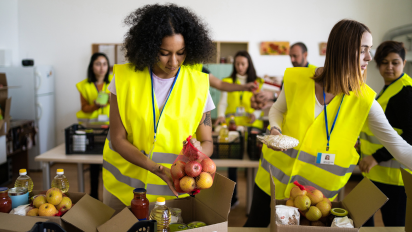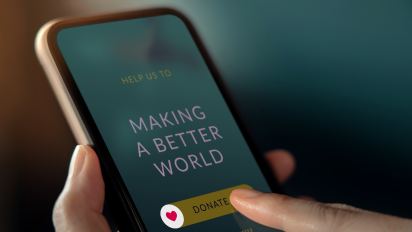The Latest
Amid a world of nonstop content, causes, and calls-to-action, Millennials have quietly reshaped what it means to give.
Often stereotyped as avocado-toast-obsessed digital natives, Millennials (born between1981 and 1996) are, in fact, a deeply values-driven generation that is reshaping what it means to give back. And we’re not waiting until we “make it” to start making a difference.
From mutual aid networks and peer-to-peer fundraising to climate justice activism and living organ donation, Millennials are writing a new rulebook on generosity. One that’s personal, participatory, and purposeful.
Unlike previous generations, Millennials are less inclined to give out of obligation or tradition. Instead, engagement is relational and deeply tied to personal values and lived experiences. Millennials don’t just want to donate—they want to do.
What Living Organ Donation Taught Me About My Generation
Perhaps one of the most profound expressions of this generational ethos is that Millennials are increasingly stepping up as living organ donors. It’s the ultimate act of personal sacrifice, and it embodies everything millennial giving is about.
It’s high-impact.
It’s intimate and relational.
It’s values-forward.
It doesn’t wait for a “someday.”
I became a living organ donor not once, but twice before the age of 30. In 2022, I donated my kidney to a young girl named Laurel, who is now almost five years old and full of life. In 2024, I became a liver donor to a father named Dustin, who was desperate to stay alive for his two-year-old son.
These weren’t abstract gestures. They were intentional, personal decisions rooted in a belief that giving back is less about grand gestures and more about choosing courage, over and over again.
The truth is, Millennials are more likely to be inspired by stories than by stats. We don’t need a corporate campaign to convince us to care. We respond to need, to proximity, to possibility. And when we see someone in trouble, we ask: What can I do?
Sometimes, the answer is inconvenient. Sometimes, it’s life-changing. And sometimes, it’s both.
How You Can Foster More Engagement with Younger Generations
- Keep it real: Authenticity always wins with younger generations. They’re researching your cause to understand what you stand for, so skip the corporate jargon and show your human side.
- Make it simple: Use short and clear call-to-actions in all communications. Want volunteers? Say “Sign up here.” Want donations? Include a big, clear button that screams “Donate now!”
- Be mobile-friendly: If it’s clunky on their phones, you’re losing them.
- Show impact: Highlight how their $10 or 10 minutes protects the planet, saves puppies, or feeds families. Then follow up with facts and gratitude (younger generations love receiving hand-written thank-you notes).
- Sustain their giving: They might not have huge disposable income, but they can still give. Sustainer programs (think: small monthly donations) work great for those who are willing to commit long-term if the cause resonates with them.
- Give them a seat at the table: Get them more involved with boards or other decision-making opportunities—these experiences can turn volunteers into lifelong supporters
Millennials aren’t just generous, we’re intentional. We give with purpose, passion, and a desire to see a more just and connected world. Whether it’s offering time, talent, or even a part of ourselves, this generation shows the world that giving isn’t a moment. It’s a mindset.
So whether you’re trying to engage supporters for a nonprofit, grow your advocacy movement, or inspire new living organ donors, remember this: Millennials aren’t waiting for someone to tell them to care. We already do.
Meet us with the tools, stories, and trust they need to make a real difference.
Looking for more information?
For more information about how you can build stronger connections with Millennial supporters, contact us at info@thelukenscompany.com.





